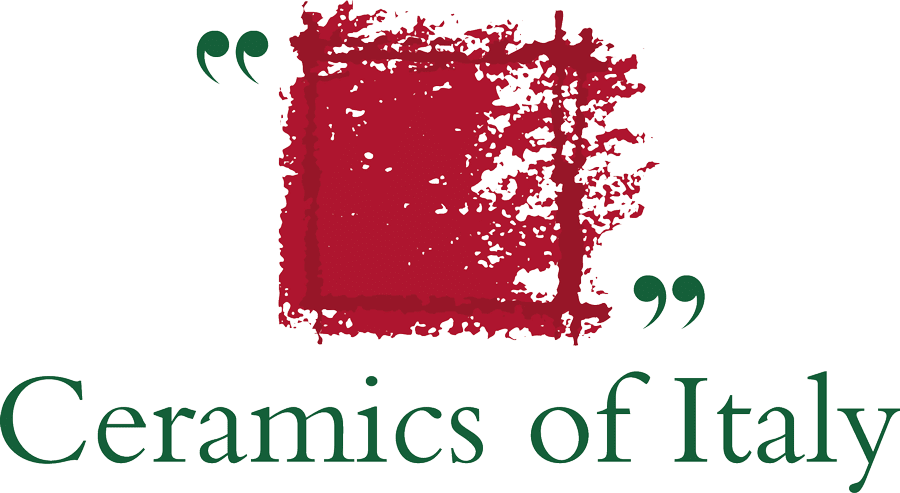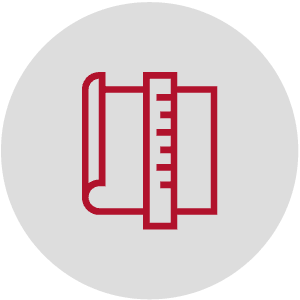The Italian ceramic tile industry has always focused on and invested in sustainability-related issues, both environmental and social. This vision is reflected in its choices of raw materials, production equipment, relations with employees and external stakeholders, the production process and the way products are used in different applications.
Ceramics of Italy for Sustainability is a strategic plan organised by Edi.Cer. and Confindustria Ceramica in collaboration with Focus Lab (a strategic research agency for sustainable innovation solutions, social responsibility and the green economy) and with the support of MAECI (Ministry of Foreign Affairs and International Cooperation) and ITA (Italian Trade Agency) aimed at promoting awareness of the sustainability profile of Italian-made ceramic tiles, sanitaryware, tableware, bricks and roof tiles.
The project was launched in October 2020 and is divided into five phases. The first phase involved summarising the key elements emerging from an analysis of the institutional communication carried out over the last 10 years, in other words the environmental and social sustainability values attributable exclusively to the Italian ceramic industry. The second phase was devoted to the findings of sustainability analysis reports for competitor materials produced by the relevant sector associations. The third phase analysed the results of an extensive consultation process involving focus groups, interviews and online surveys to determine the perceptions and expectations of the Italian ceramic industry’s main international stakeholders (distributors, designers and installers). The fourth phase examined the Italian ceramic industry’s position with respect to international sustainability benchmarks. This phase also involved analysing the industry’s position in relation to the main urban planning trends, the challenges facing the building sector, and the sustainability models and benchmarks which are emerging at a European and international level, and provided useful information for the industry’s communication efforts. During the fifth and final phase, the Ceramics of Italy for Sustainability strategic communication and promotion plan will be drawn up according to the results of the project.
The Italian ceramic industry’s key strengths include a number of factors relating to environmental and social sustainability. Regarding the product itself, Italian ceramics can offer outstanding characteristics such as a unique combination of Italian design and green process criteria, hygiene and healthiness, durability (an average life cycle in excess of 50-75 years), multi-functionality and suitability for green building ratings (LEED and Well credits, etc.). The potential offered by the production process is reflected in the ISO 14001 environmental management and ISO 50001 energy policy certifications and the EU’s EMAS regulation and includes a reduction in almost all atmospheric emission factors, a circular economy approach based on the total reuse of waste from internal and external production cycles, less use of raw materials for glazing, and a reduction in water and energy use thanks to digital decoration. The ceramic tile industry has established important partnerships with schools, universities, communities and research centres and promoted business networking and community engagement activities. It has also demonstrated its commitment to safeguarding the planet through the process of decarbonisation, the circular economy and mobility of goods and people, and the use of rail as an alternative to road transportation. As regards social sustainability, the ceramic industry focuses strongly on issues of corporate welfare and well-being, development of human capital and customer experience.
Among the strategic objectives in the field of communication, all stakeholders expressed the need to consolidate the existing strengths in terms of product and process sustainability, introduce sustainability content tailored to the various stakeholders and integrate communication tools to promote the sustainability profile. Sectoral-level objectives focus on the possibility of integrating different management levels, strengthening sustainability across the entire production and supply chain and building partnerships in sustainable innovation projects.
The project also included a SWOT (strengths, weaknesses, opportunities, threats) analysis to determine the Italian ceramic sector’s strengths and the opportunities offered by the sustainability profile of the ceramic industry in general. This analysis shows that the industry’s key strengths are the quality and durability of the product, recycling processes, energy efficiency, green product certifications and international standard ratings. Among the opportunities, greater emphasis should be placed on new urban planning scenarios and policies, smart city and urban regeneration projects, building redevelopment and new multi-stakeholder partnerships.
See also: “The European ceramic industry towards 2050”
March 2022



 Architects
Architects
 Dealers
Dealers

